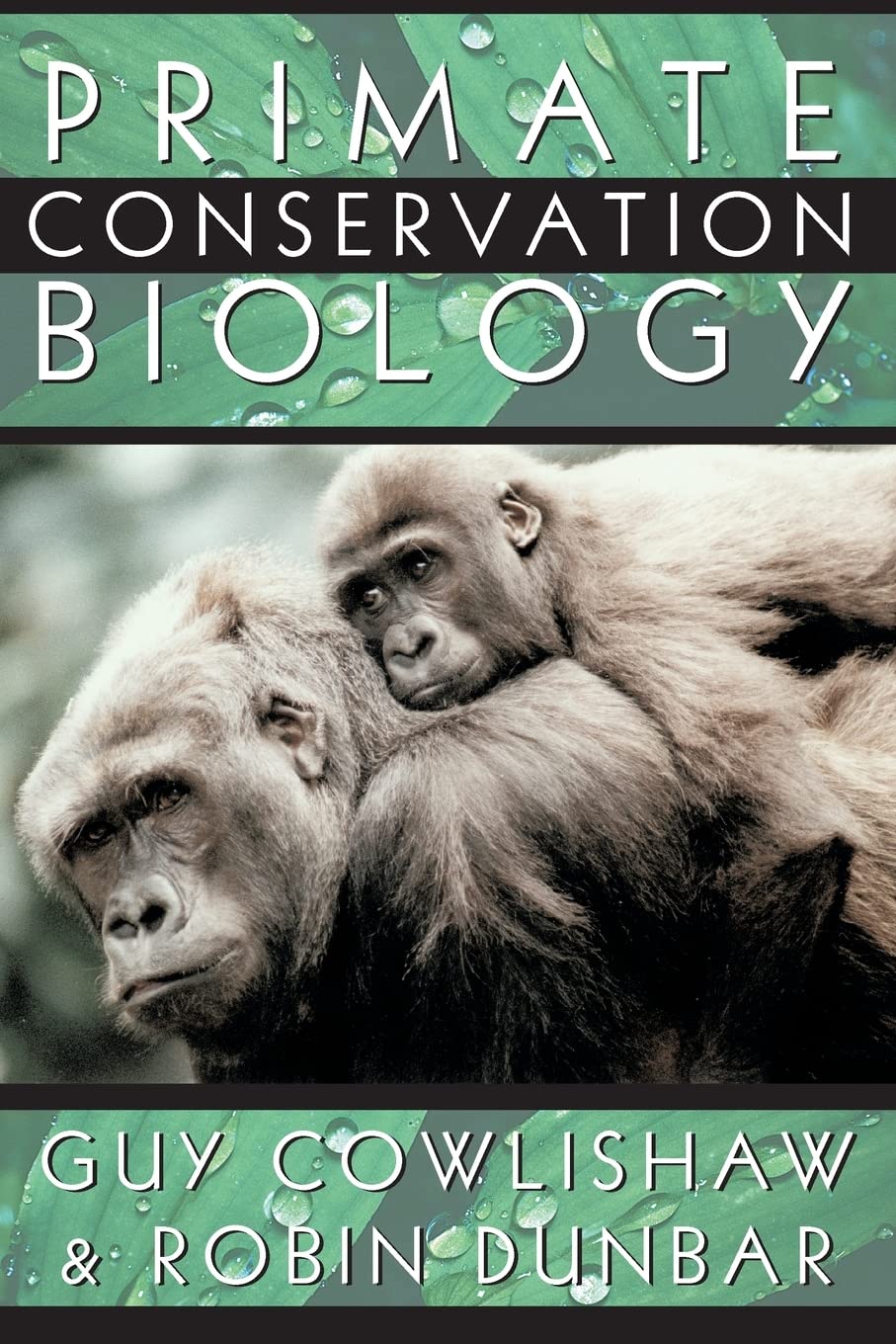
Title

Primate Conservation Biology
Delivery time: 8-12 business days (International)
From The Snubnosed Monkeys Of China To The Mountain Gorillas Of Central Africa, Our Closest Nonhuman Relatives Are In Critical Danger Worldwide. A Recent Report, For Example, Warns That Nearly 20 Percent Of The World'S Primates May Go Extinct Within The Next Ten Or Twenty Years. In This Book Guy Cowlishaw And Robin Dunbar Integrate Cuttingedge Theoretical Advances With Practical Management Priorities To Give Scientists And Policymakers The Tools They Need To Help Keep These Species From Disappearing Forever.Primate Conservation Biology Begins With Detailed Overviews Of The Diversity, Life History, Ecology, And Behavior Of Primates And The Ways These Factors Influence Primate Abundance And Distribution. Cowlishaw And Dunbar Then Discuss The Factors That Put Primates At The Greatest Risk Of Extinction, Especially Habitat Disturbance And Hunting. The Remaining Chapters Present A Comprehensive Review Of Conservation Strategies And Management Practices, Highlighting The Key Issues That Must Be Addressed To Protect Primates For The Future.
By changing our most important processes and
products, we have already made a big leap forward. This ranges from the
increased use of more sustainable fibers to the use of more
environmentally friendly printing processes to the development of
efficient waste management in our value chain.
⚠️ WARNING (California Proposition 65):
This product may contain chemicals known to the State of California to cause cancer, birth defects, or other reproductive harm.
For more information, please visit www.P65Warnings.ca.gov.
Shipping & Returns
Shipping
We ship your order within 2–3 business days for USA deliveries and 5–8 business days for international shipments. Once your package has been dispatched from our warehouse, you'll receive an email confirmation with a tracking number, allowing you to track the status of your delivery.
Returns
To facilitate a smooth return process, a Return Authorization (RA) Number is required for all returns. Returns without a valid RA number will be declined and may incur additional fees. You can request an RA number within 15 days of the original delivery date. For more details, please refer to our Return & Refund Policy page.
Shipping & Returns
Shipping
We ship your order within 2–3 business days for USA deliveries and 5–8 business days for international shipments. Once your package has been dispatched from our warehouse, you'll receive an email confirmation with a tracking number, allowing you to track the status of your delivery.
Returns
To facilitate a smooth return process, a Return Authorization (RA) Number is required for all returns. Returns without a valid RA number will be declined and may incur additional fees. You can request an RA number within 15 days of the original delivery date. For more details, please refer to our Return & Refund Policy page.
Warranty
We provide a 2-year limited warranty, from the date of purchase for all our products.
If you believe you have received a defective product, or are experiencing any problems with your product, please contact us.
This warranty strictly does not cover damages that arose from negligence, misuse, wear and tear, or not in accordance with product instructions (dropping the product, etc.).
Warranty
We provide a 2-year limited warranty, from the date of purchase for all our products.
If you believe you have received a defective product, or are experiencing any problems with your product, please contact us.
This warranty strictly does not cover damages that arose from negligence, misuse, wear and tear, or not in accordance with product instructions (dropping the product, etc.).
Secure Payment
Your payment information is processed securely. We do not store credit card details nor have access to your credit card information.
We accept payments with :
Visa, MasterCard, American Express, Paypal, Shopify Payments, Shop Pay and more.
Secure Payment
Your payment information is processed securely. We do not store credit card details nor have access to your credit card information.
We accept payments with :
Visa, MasterCard, American Express, Paypal, Shopify Payments, Shop Pay and more.
Related Products
You may also like
Frequently Asked Questions
- Q: What is the main focus of 'Primate Conservation Biology'? A: The book focuses on the critical dangers facing primates worldwide, discussing their diversity, life history, ecology, behavior, and the factors that contribute to their risk of extinction.
- Q: Who are the authors of this book? A: The book is authored by Guy Cowlishaw and Robin Dunbar, both of whom provide insights into primate conservation.
- Q: How many pages does 'Primate Conservation Biology' have? A: The book contains 498 pages, providing a comprehensive overview of primate conservation issues.
- Q: What year was 'Primate Conservation Biology' published? A: It was published on September 1, 2000.
- Q: What is the item condition of this book? A: The item condition is listed as 'Good', indicating it is used but in decent shape.
- Q: What type of binding does this book have? A: The book is available in a paperback binding.
- Q: What are some key topics covered in the book? A: Key topics include primate diversity, risks of extinction, habitat disturbance, hunting, and conservation strategies.
- Q: Is this book suitable for policymakers? A: Yes, it integrates theoretical advances with practical management priorities, making it a useful resource for scientists and policymakers.
- Q: Does the book include practical management practices for primate conservation? A: Yes, the book presents a comprehensive review of conservation strategies and management practices essential for protecting primates.
- Q: What is the significance of the findings presented in 'Primate Conservation Biology'? A: The findings highlight the urgent need for conservation efforts to prevent the extinction of nearly 20 percent of the world's primate species within the next decade.
